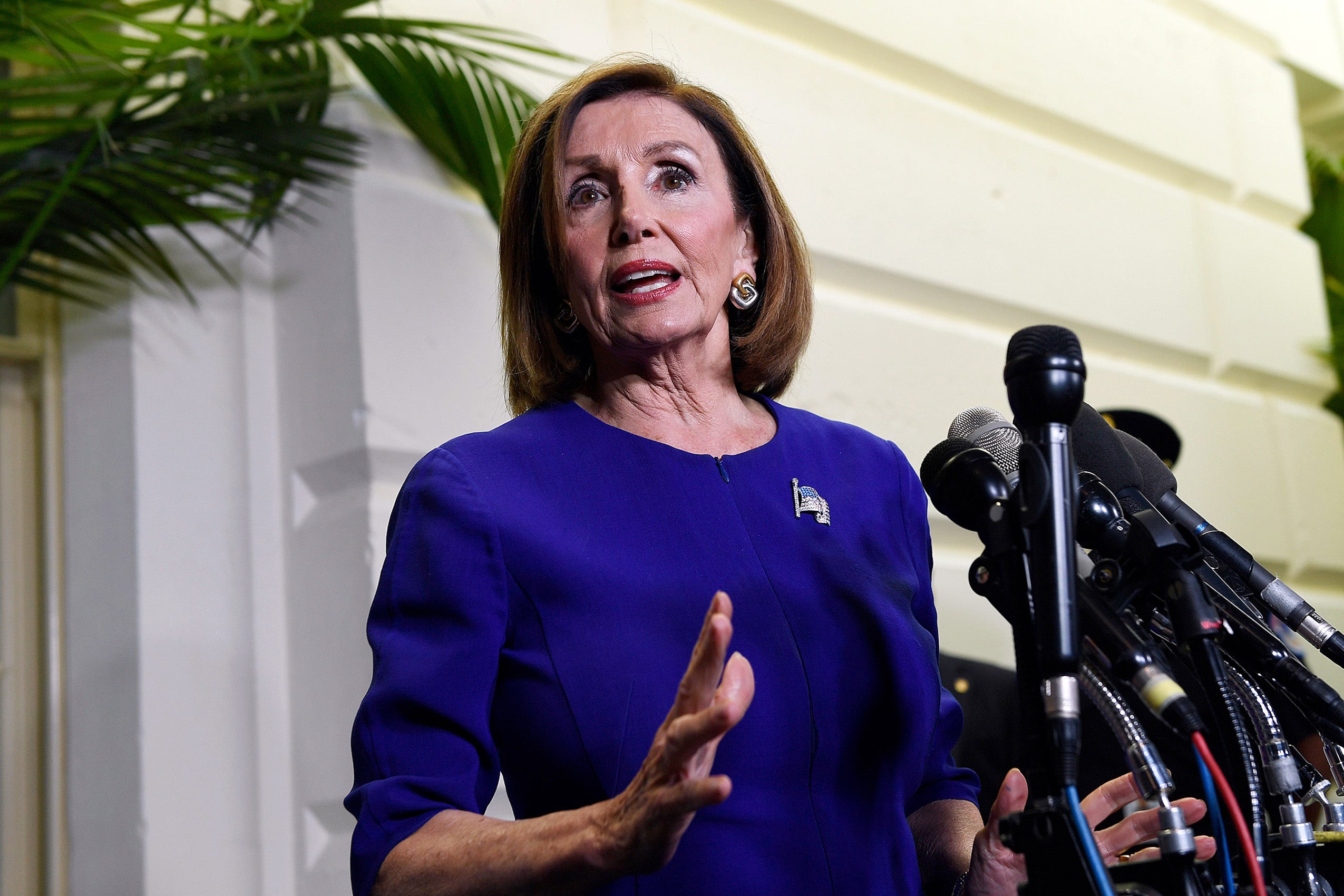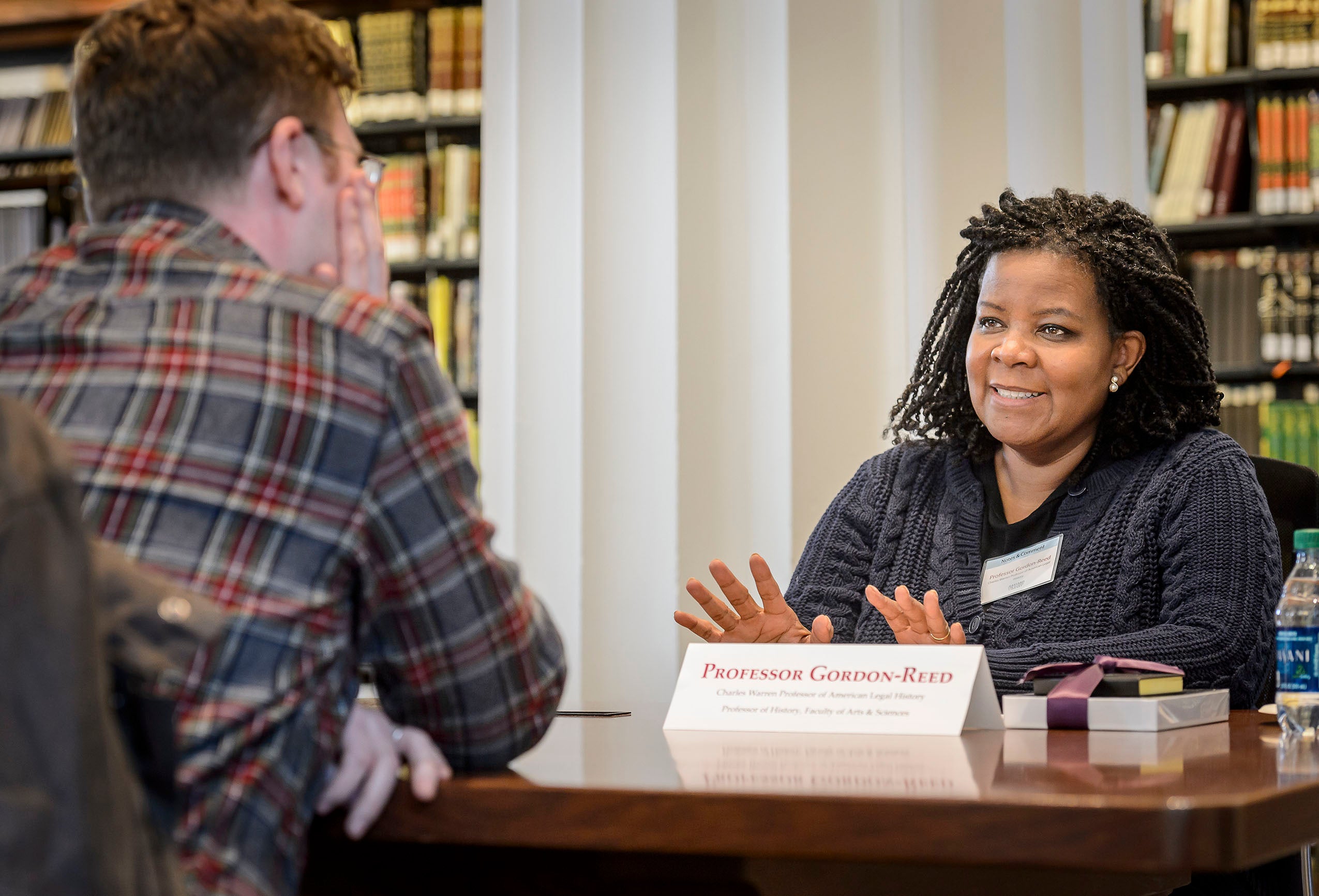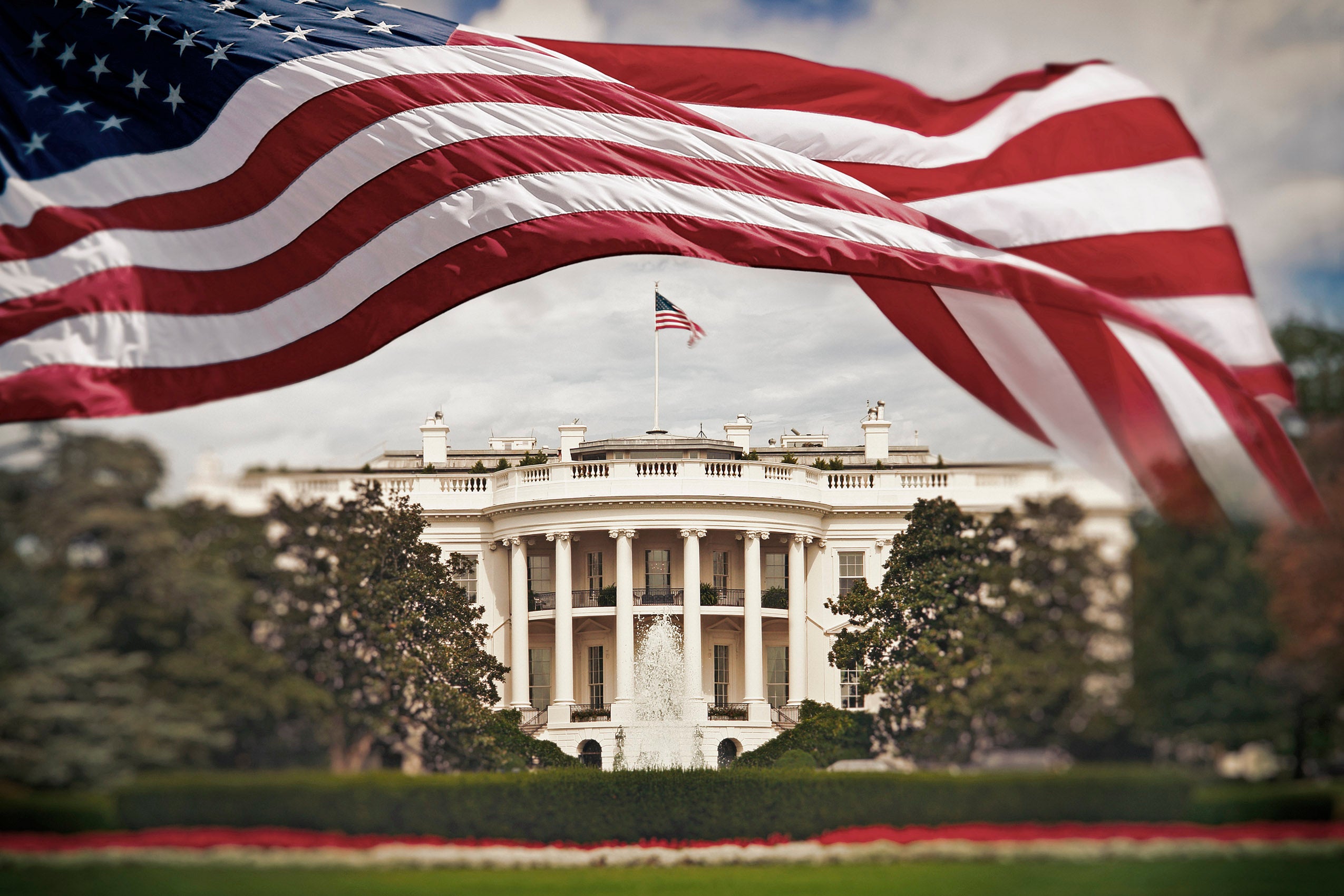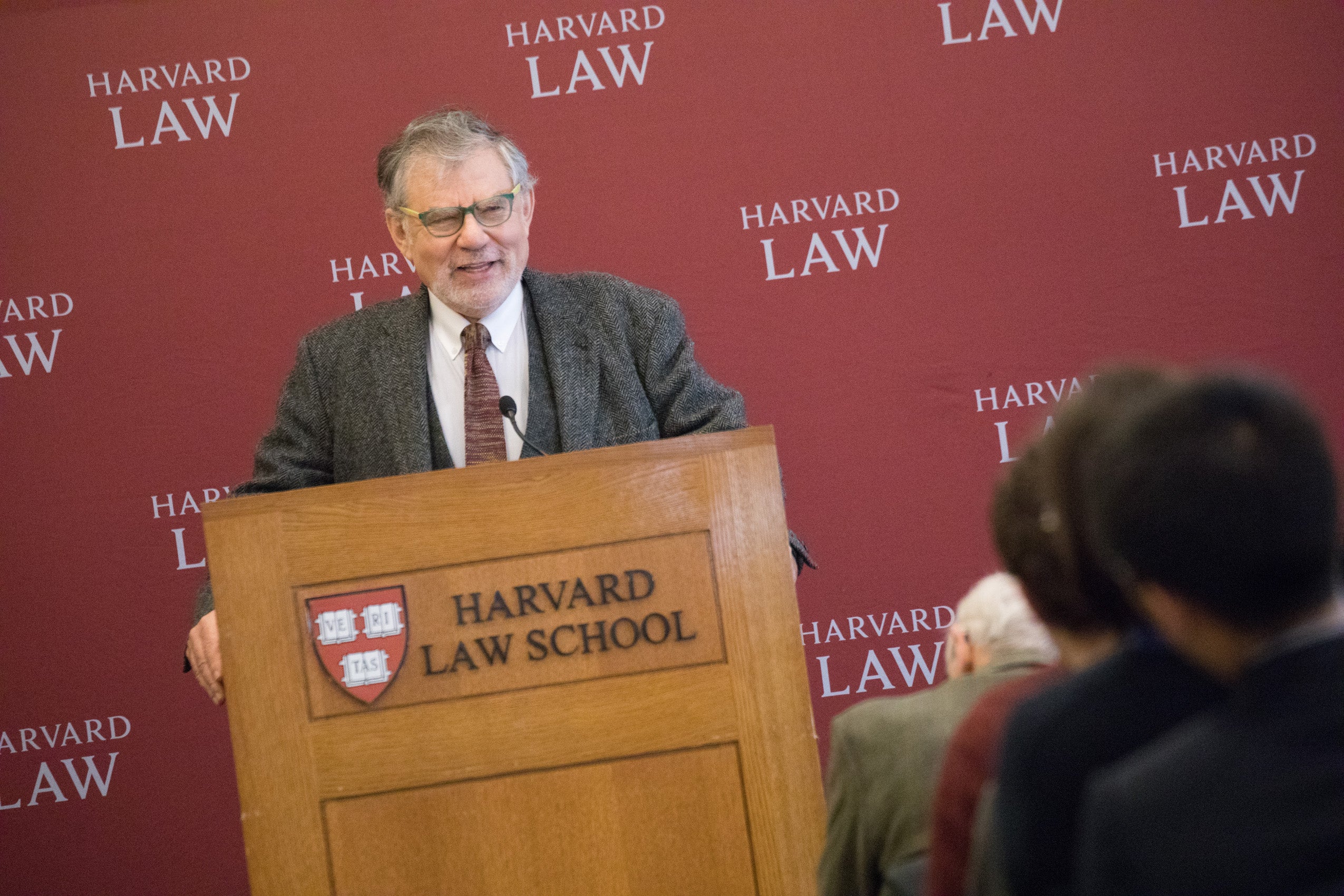People
Charles Fried
-
Reagan’s Solicitor General Says ‘All Honorable People’ Have Left Trump Cabinet: ‘He Is Capable Of Doing Serious Damage’
January 22, 2020
Charles Fried was a fervent, superior officer on the frontlines of the Reagan Revolution. As solicitor general of the United States from 1985 to 1989, he urged the U.S. Supreme Court to overturn the reining liberal orthodoxies of his day—on abortion, civil rights, executive power and constitutional interpretation. But the Trump Revolution has proven a bridge too far. As he reveals in a scorching interview with Newsweek's Roger Parloff below, Fried has broken ranks. He denounces a president who is "perhaps the most dishonest person to ever sit in the White House." As disgusted as he is by President Donald Trump, Fried is, if possible, even more dismayed by William Barr, Trump's current attorney general, for having stepped up as Trump's chief apologist. Fried says of Barr. "His reputation is gone."
-
Used to be that the promise of earning a sterling line on a resume and connections to stars of the legal profession was enough to lure Harvard law students to federal clerkships...The expectation is that judges and their clerks will act and make decisions based on the law, not in the interest of ideology or political party, said Charles Fried, a Harvard constitutional law professor and former solicitor general in the Reagan administration. “If the only people who will clerk for a Trump-nominated judge are the people who voted for Trump, it will drive things to further extremes,” Fried said. “It’s odd and self-defeating.” Judges without strong experience who may be too ideologically driven need smart law clerks who will offer different perspectives, he said...“We work to share available clerkship opportunities with our students, confident they will apply for the ones that best suit their interests and needs,” said Mark Weber, assistant dean for career services at Harvard Law School in a statement. “We understand that different judges appeal to different applicants for different reasons.”...Nancy Gertner, a retired Massachusetts federal judge who teaches at Harvard, said neither the president nor students should have narrow slates of judges that they are willing to consider. “You can’t be in a position to say there has to be an orthodoxy to become a judge or work for a judge,” Gertner said.
-
Amendment 4 restrictions spoil ex-felons’ redemption
January 3, 2020
An article by Charles Fried: Over the last few years, teams of law students from several schools as well as volunteers from a variety of organizations staffed phone banks or traveled to Alabama to help educate people with felony convictions, who had served their terms, about their restored voting rights and to help them register to vote. These volunteers reported that this was one of their most gratifying experiences as students or lawyers. Many of the people they contacted were surprised that their fellow citizens took the effort to reengage them in the political process. But more than that, many of these individuals expressed joy that their right to vote represented to them the full restoration of their citizenship. Perhaps some of these volunteers remembered the line from Hebrews: “Remember those in prison as if you were bound with them, and those who are mistreated as if you were suffering with them."
-
A longtime leading conservative voice slammed President on Thursday as “ignorant and foul-mouthed,” and warned the nation is in a constitutional crisis. Charles Fried, a constitutional law professor at Harvard University who was solicitor general to President , told ’s how he fled Czechoslovakia when the Nazis took over and eventually settled in the United States. “I’ve had a wonderful life here. I love it, as do my children and my grandchildren,” he said. “And this man terrifies me.” Fried added: [Trump] says that the Constitution said ― and he said this to a bunch of high school students ― ‘I can do whatever I want, that’s what Article II says.’ Well it doesn’t, any lawyer knows that, any lawyer except maybe [Attorney General] Bill Barr and Mr. Cipollone [White House counsel Pat Cipollone]. “Our fidelity is to the law, and to the office,” Fried said. “Not to a man.”
-
David L. Shapiro, Harvard Law professor and former deputy solicitor general, dies at 87
December 2, 2019
In a 65-page critique of early decisions made by William H. Rehnquist, who was then an associate justice on the US Supreme Court, Harvard Law School professor David L. Shapiro wasted no time getting to his point — which he tucked at the end of his first paragraph. Basing his view on the justice’s written opinions and votes, Mr. Shapiro wrote in 1976 that while Rehnquist was “a man of considerable intellectual power and independence of mind, the unyielding character of his ideology has had a substantial adverse effect” on his work. Mr. Shapiro, the law school’s William Nelson Cromwell professor emeritus when he died at 87 on Nov. 19, was considered a leading intellectual light in the field of federal courts philosophy and theory. And for nearly a half-century he coedited editions of “The Federal Courts and the Federal System,” a key text for law students.“David was the heart and soul of ‘The Federal Courts and the Federal System,’ ” John F. Manning, dean of Harvard Law School, said in a statement. “He really shaped the field of federal courts. David was able to bring out the complexity and nuance of the law for judges, scholars, and practitioners, and he always did so with clarity and insight,” added Manning, who had joined Mr. Shapiro as a co-editor of the book’s sixth edition, published in 2010...Charles Fried, a Harvard Law School professor who, as solicitor general in the Reagan administration, hired Mr. Shapiro to serve as one of his deputies, recalled that some critics questioned the wisdom of hiring “somebody who had been so critical of the chief justice. Well, I knew Rehnquist and I think he couldn’t give a damn and it wouldn’t bother him a bit. It turned out there was no issue.”
-
Barr’s Legal Views Come Under Fire From Conservative-Leaning Lawyers
November 25, 2019
A group of conservative-leaning lawyers criticized Attorney General William P. Barr for the expansive view of presidential power he espoused in a recent speech and for his conclusion this spring that President Trump had not obstructed justice in the Russia investigation...Mr. Barr’s view on executive power is a misreading of the unitary executive theory, said Charles Fried, a Checks and Balances member and Harvard Law professor who endorsed the theory while he was solicitor general during the Reagan administration. In Mr. Fried’s reading of the theory, “the executive branch cannot be broken up into fragments.” While that branch acts as a unified expression of a president’s priorities, with the president firmly at the helm, “it is also clear that the executive branch is subject to law,” Mr. Fried said. “Barr takes that notion and eliminates the ‘under law’ part.”
-
‘The Wild West’: Questions surround Trump legal team payments
October 29, 2019
In 1994, as a slew of scandals were popping up around President Bill Clinton, an attorney who worked with his defense team visited the Office of Government Ethics (OGE) in Washington to ask a simple question in person: Could the president of the United States accept free legal services from his personal lawyers? An unambiguous answer came back from the OGE, the executive branch’s in-house experts at preventing conflicts of interest: No...Flash forward 25 years, and President Trump is doing things very differently...Charles Fried, a Harvard Law professor who served as solicitor general under President Ronald Reagan and serves on the board of the nonpartisan Campaign Legal Center, said it would be “obviously problematic” for Trump to have a member of his legal team working pro bono. “He is ... receiving hundreds of hours of legal services, which, you know, people like Giuliani charge a thousand dollars an hour. [Trump is] getting that for free,” Fried said.
-
After Criticism, Trump to Select New Location for G7
October 20, 2019
President Trump said on Saturday that he would no longer hold next year’s Group of 7 meeting at his luxury golf club near Miami, a swift reversal after two days of intense criticism over awarding his family company a major diplomatic event. ... Lawyers who have served in both Republican and Democratic administrations objected to the selection of the Doral, including several who emphasized that even though Mr. Trump, as president, is exempt from a federal conflict-of-interest statute, his role in the matter was improper. “It stinks,” said Charles Fried, a Harvard law professor who served as solicitor general under President Ronald Reagan. “It is so completely blatant.” Some Republicans in Congress also questioned Mr. Trump’s move.
-
House Examines Boom In Buybacks Amid Bills To Curb Them
October 18, 2019
The House Financial Services Committee scrutinized the boom in stock buybacks on Thursday, with Democrats eyeing more regulation on buybacks to deter perceived abuses while Republicans cautioned against interfering with the ability of companies to deploy capital. The debate comes as the committee considers four bills that would, to varying degrees, limit or ban buybacks or require companies to increase disclosure about their buyback activity...Harvard law professor Jesse Fried said "lax" disclosure rules allow companies to not disclose their buyback actions until after a quarterly period has ended. He called for requiring companies to disclose trades made during a buyback within two days in order to boost transparency, which is similar to a time frame that applies to corporate insiders trading their own companies' stock. "You would curb a lot of these abuses," Fried said, adding that the U.K., Hong Kong and Japan have rules that require such disclosures be made in less time. "Other countries have figured this out, so there is no reason we can't do it," he said.
-
Noted conservative lawyer on Trump: ‘This man terrifies me’
October 11, 2019
Harvard Law School professor Charles Fried and Case Western Reserve Law professor Jonathan Adler explain why a speedy impeachment inquiry is necessary.
-
Experts explore the thorny legal and political implications of trying to unseat Trump
September 25, 2019
Harvard faculty explore the thorny legal and political implications of trying to unseat Trump, and whether it will matter in the end if it reaches the Republican-controlled Senate.
-
When a presidential pardon is illegal
September 16, 2019
An op-ed by Charles Fried: In 1865, in Ex parte Garland, the Supreme Court ruled that the president’s pardon power, granted in Article II, Section 2 of the Constitution, was absolute: Once exercised it could not be reversed, and therefore, because of his presidential pardon, former Confederate Senator Augustus Garland was beyond the reach of punishment or disqualifications for his past crimes. In that case, President Andrew Johnson, against the evident wishes of the Republican Reconstruction Congress, had pardoned Garland, one of many former Confederate politicians. It is a logical entailment of that ruling that the pardon power cannot be subject to prior legal constraints or limits on its valid exercise. Thus, though President Trump has blatantly ignored the procedures established to examine the propriety and circumstances of its exercise (there is in the Justice Department a pardon attorney who, with a staff, documents the relevant grounds for granting a pardon and makes recommendations based on past practice regarding its exercise), his pardon, once granted, as in the case of Sheriff Joseph Arpaio, cannot be undone.
-
Conservative Lawyers (Including George Conway) Condemn Trump’s ‘Ignorant Racist Nature’
July 16, 2019
A group of libertarian and conservative lawyers that formed to counter alleged transgressions of legal norms by the Trump administration issued a statement Monday condemning tweets from the president that urged four minority female Democratic House members to “go back” to their home countries. Trump’s tweets, saying four freshmen members of the U.S. House should “fix” their home countries before criticizing the U.S., deeply angered Democrats but left Republicans largely silent. All four of the lawmakers are U.S. citizens, and three of them were born in the United States...In addition to George Conway, of counsel to Wachtell, Lipton, Rosen & Katz, other signatories included Harvard Law School professor Charles Fried, a former Reagan administration U.S. solicitor general...
-
A Day of Sorrow for American Democracy
July 9, 2019
An article by Charles Fried: The usual form for a justice who disagrees, no matter how fundamentally, with a decision of the Supreme Court is to end the opinion with the formula “I respectfully dissent.” Justice Antonin Scalia, in particularly high dudgeon, would sometimes drop the adverb. Last week, though, Justice Elena Kagan, writing for the four justices who disagreed with Chief Justice John Roberts’s opinion in Rucho v. Common Cause purporting to withdraw the Court once and for all from passing judgment on the constitutionality of partisan gerrymanders, ended thus: "Of all times to abandon the Court’s duty to declare the law, this was not the one. The practices challenged in these cases imperil our system of government. Part of the Court’s role in that system is to defend its foundations. None is more important than free and fair elections. With respect but deep sadness, I dissent." Kagan’s occasion for sorrow is deep not only because the chief justice left a fundamental flaw in our constitutional democracy without hope of a judicial remedy, but because of the defective reasoning by which he came to that conclusion.
-
What was he thinking? That is the question many are asking on both sides of the political spectrum. Chief Justice John Roberts repeatedly voted with the Supreme Court's conservatives this term, except in one, and only one, 5-4 decision. Written by Roberts, the ruling blocked the addition of a citizenship question on the 2020 census, leaving an angry President Trump desperately trying to find a way around it. It also left a lot of speculation about the motives of the chief justice..."There's no doubt there's an agenda here," said Harvard Law professor Charles Fried, who served for four years in the Reagan administration as solicitor general, the government's chief advocate in the Supreme Court. He and other Republican former officeholders filed a brief on behalf of those challenging extreme partisan gerrymanders. Alluding to Roberts' famous confirmation hearing comment that the job of a judge is not to bat for one side but to "call balls and strikes," Fried observes caustically, "This is not balls and strikes. This is a long term, shrewdly played, but persistent program."
-
Who’s a True Conservative?
June 11, 2019
A letter to the editor by Charles Fried: The media, including, I regret to say, The New York Times, have slipped into the habit of referring to people like Clarence Thomas, the justices who often vote with him, the Senate majority leader and those he leads, and journalists like Sean Hannity as “conservatives.” Of course they have nothing to do with conservatism as it has been known in the life of our country. True conservatives share the mind and temperament of Edmund Burke. They are men and women like Dwight D. Eisenhower, John Marshall Harlan, Sandra Day O’Connor, Bob Dole, Howard Baker and many more. Those who today are called conservatives for ease of reference are nothing of the sort. The historical and correct term is reactionaries.
-
Ongoing D.C. fight tests separations of powers
May 20, 2019
Subpoenas are flying. Lawsuits are multiplying. Democratic leaders claim the country is in the grip of a “constitutional crisis.” And President Trump is crying foul. While it may sound like just the latest twist on Washington’s workaday partisan warfare, numerous legal experts and other scholars say the escalating conflict between House Democrats investigating the president and a defiant White House is entering uncharted territory. ... Laurence Tribe, a Harvard constitutional law professor and a political liberal, called Trump’s blanket refusals to comply with numerous subpoenas and other requests “completely unprecedented in the history of the United States.” ... “We’re at the beginning of a very lengthy and rather complicated and various process,” given the numerous prongs of the broader standoff, and the complexities embedded in each case, said Harvard law professor Charles Fried, who was solicitor general under President Ronald Reagan. The slowness of the legal process will likely work to Trump’s political favor, he said.
-
Collaboration zone
April 26, 2019
Library event provides unique opportunity for faculty-student interaction.
-
Video: Sovereignty and the New Executive Authority
March 22, 2019
The Harvard Law School Library recently hosted Claire Finkelstein, professor of law and philosophy at the University of Pennsylvania, for a discussion on "Sovereignty and the New Executive Authority," a volume of essays exploring the growing struggle to maintain the legal and ethical boundaries surrounding executive authority in the post- 9/11 United States.
-
Amy Klobuchar’s Treatment of Her Aides
February 27, 2019
Readers discuss whether an article about the Minnesota senator’s reputation as a tough boss was fair or sexist, and whether it should sway voters. A letter from Charles Fried: A saying in the court of Louis XIV had it that “no man is a hero to his valet.” Your lengthy front-page article about Senator Amy Klobuchar suggests that no politician is a saint to her staff. In high-stress jobs every human being is prone to fits of temper and less than perfect fairness to those who work with her in close settings day in and day out.
-
Europe’s Culture Crisis
February 13, 2019
Europe’s crisis—the challenges to liberal democracy across the continent, the rise of right-wing nationalist parties, the backlash against the European Union—isn’t a rebellion of economic have-nots, according to former HLS professor Joseph Weiler, who delivered the Herbert W. Vaughan Memorial Lecture, “The European Culture War 2003-2019,” on Feb. 6.



